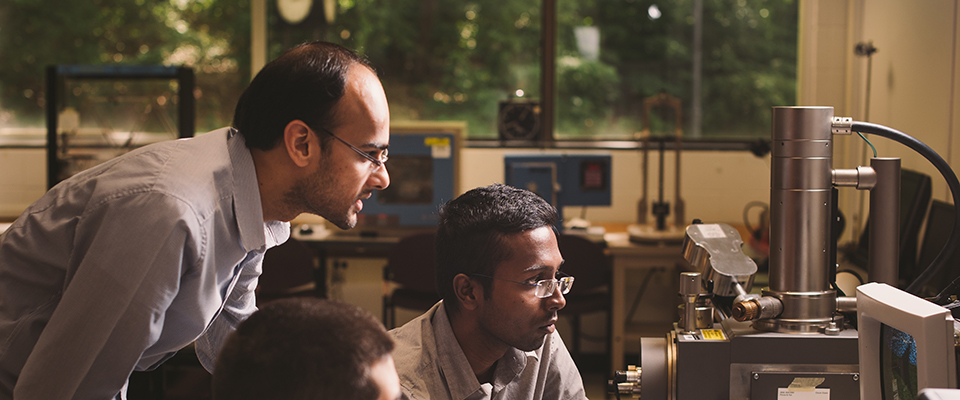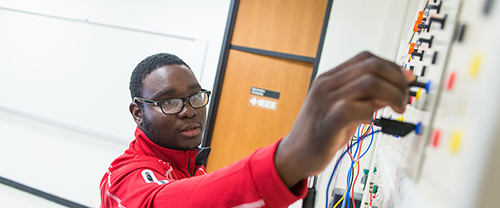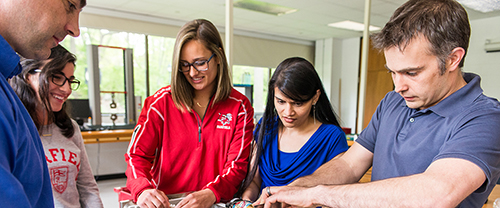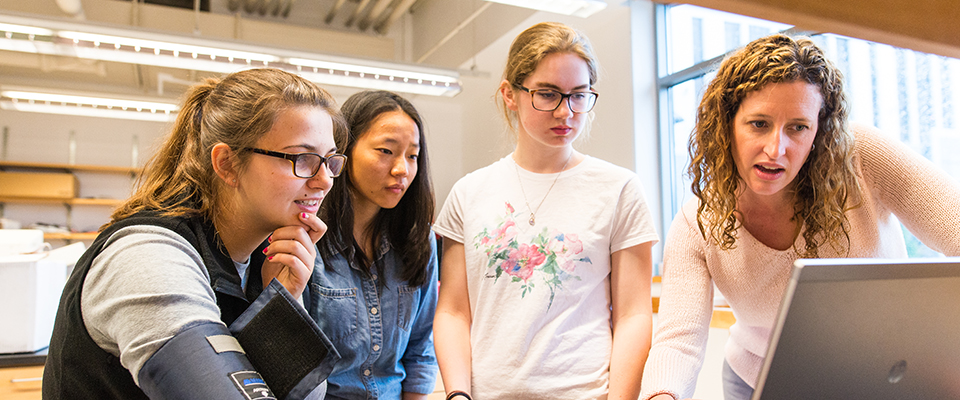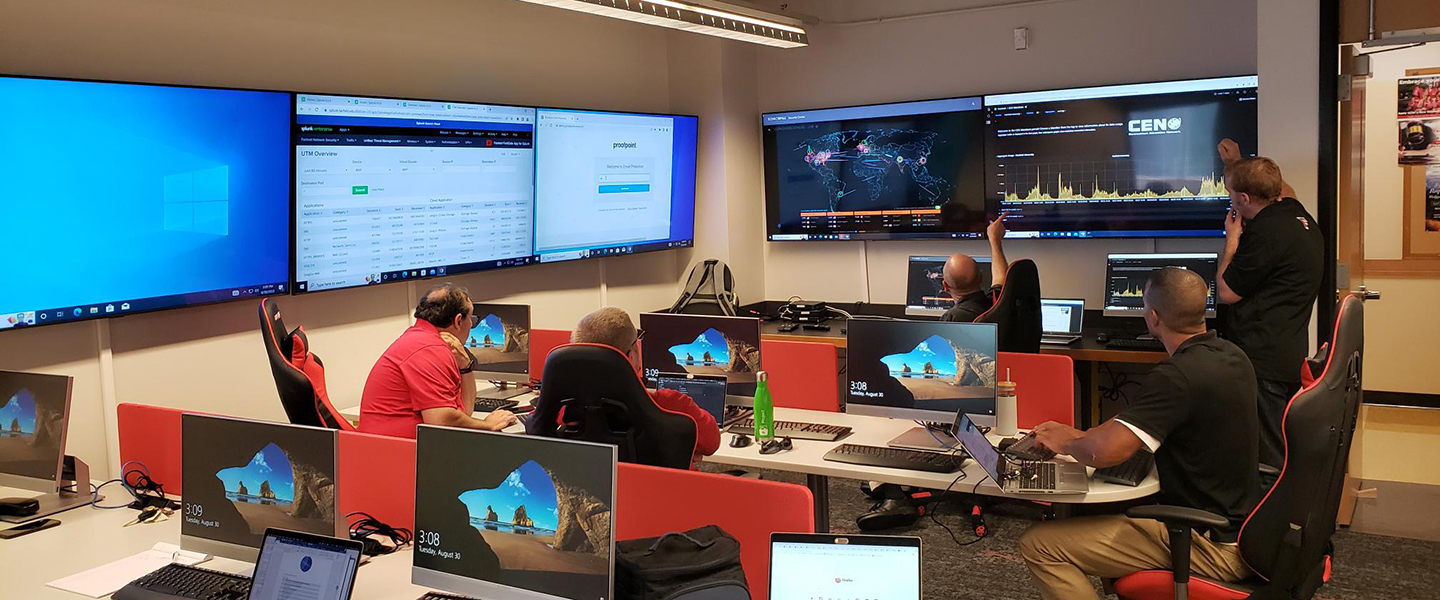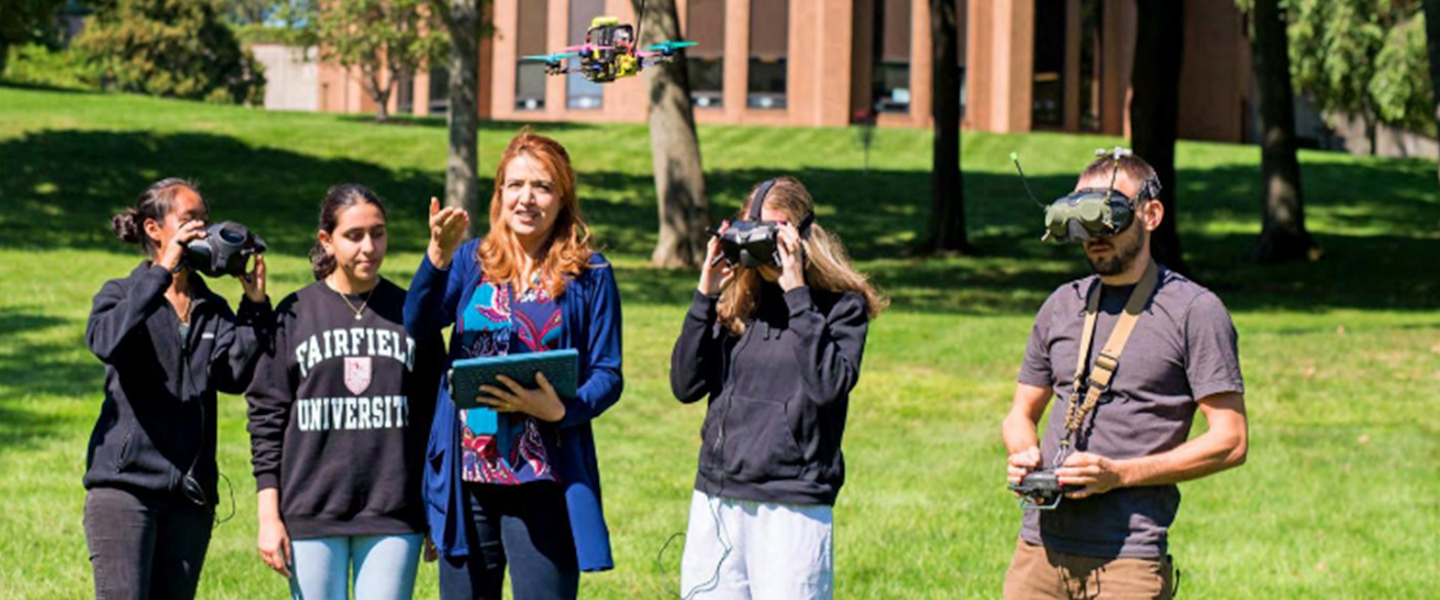On This Page
A Message from Dean Andres L. Carrano
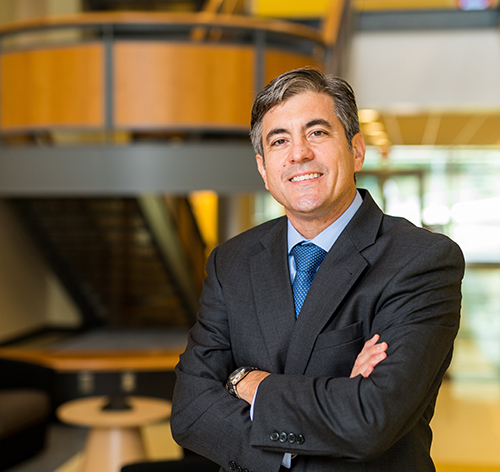
Welcome to the Fairfield University School of Engineering & Computing webpage!
We are proud to be one of the very few universities that offer Engineering and Computer Science programs that are rooted in the centuries-old Jesuit educational tradition. In addition to a rigorous academic and hands-on experience, we focus on forming tomorrow’s leaders through the principles of Cura Personalis and the development of the whole person. Anchored in our signature Magis liberal arts core of classes, all of our programs emphasize communication skills, critical thinking, and social responsibility.
Above all, we strive to provide a comprehensive educational experience that yields highly competent engineers and computer scientists who display character and integrity, and possess a heightened sense of social justice, environmental responsibility, and overall concern for others.I invite you to browse our pages, contact any of our faculty or staff, or come over for a visit to our beautiful campus. I am sure you will find that Fairfield University is a special place with inspiring people. Fairfield engineering, engineering with a higher purpose!
— Andres L. Carrano, PhD
ABET Accreditation
The School of Engineering and Computing’s Bachelor of Science (BS) programs in Electrical Engineering, Biomedical Engineering, and Mechanical Engineering are accredited by the Engineering Accreditation Commission of ABET, http://www.abet.org under the general criteria and the applicable program criteria for each program, as described on the individual program pages. The School of Engineering and Computing’s Bachelor of Science (BS) programs in Computer Science is accredited by the Computing Accreditation Commission of ABET, http://www.abet.org as described on the individual program pages.
About ABET:
ABET is a nonprofit, non-governmental organization that accredits college and university programs in the disciplines of applied science, computing, engineering, and engineering technology. ABET accredits over 3,400 programs at nearly 700 colleges and universities in 28 countries. ABET provides specialized, programmatic accreditation that evaluates an individual program of study, rather than evaluating an institution as a whole.
ABET accreditation, which is voluntary and achieved through a peer review process, provides assurance that a college or university program meets the quality standards established by the profession for which the program prepares its students.
The ABET Program Educational Objectives of the BS engineering programs at Fairfield University are listed on the individual program pages.
Assessment of student learning outcomes at the course level and student outcomes at the program level using both indirect and direct assessment methodologies is coupled with the evaluation of accomplishment of metric thresholds and used for continuous program improvement.
Meet The Administration And Faculty
History & Overview Of The School Of Engineering & Computing
Headquartered in the Rudolph F. Bannow Science Center, the current Fairfield University School of Engineering & Computing is a continuation of the Bridgeport Engineering Institute (BEI), after a merger in 1994 resulted in the formation of the BEI School of Engineering at Fairfield University. BEI was founded in 1924 with a mission to deliver quality engineering education to the citizens of southern Connecticut.
The School of Engineering & Computing at Fairfield has grown from two original electrical and mechanical engineering programs in 1994 to now include undergraduate programs in biomedical engineering, computer science, electrical engineering, and mechanical engineering. A selection of five-year BS/MS programs are available, including an MS in Management of Technology. Graduate programs are offered in data science, cybersecurity, electrical and computer engineering, management of technology, mechanical engineering, and software engineering.
Continuing to adapt to an ever-changing world, the School of Engineering & Computing also offers a Software Engineering Certificate Program with specializations in cybersecurity, data science and big data technologies, network technology, and web and mobile application development.
Vision & Mission Statement
Vision
The School of Engineering & Computing will be a recognized leader in modern, experiential-based engineering education and will be known for innovative, applied research that, together, fosters a student-centered and research-focused educational experience that prepares graduates for successful and rewarding careers in service to others.
Mission
The School of Engineering & Computing is dedicated to:
- Providing transformative educational experiences that prepare our graduates for successful careers;
- Advancing engineering knowledge through applied research; and
- Supporting the University’s mission of whole-person development (cura personalis) by inculcating into our students the service-to-humanity character of the engineering profession.
Purpose
We believe a strong, experientially based curriculum, supported by faculty with an applied research focus will lead to:
- Enhanced academic reputation.
- Increased scholarship (i.e., scholarship of application; scholarship of teaching and learning)
- Students, imbued with the service-to-humanity character of the engineering profession, prepared to meet the future challenges of a rapidly evolving, technology-based society.
Values
“Our Ethics in Action”
Excellence in all we do
Engagement at every level
Innovation across all disciplines
Character as a foundation of Leadership
Diversity and Inclusion in all things
Service to Humanity as a lifelong goal
Outcomes Assessment
The School of Engineering & Computing (SEC) has established both qualitative and quantitative instruments to assess outcomes of educational processes implemented in the School in support of the educational objectives of its undergraduate and graduate programs. Data on outcomes is collected on a continuous basis and evaluated to guide program improvements.
SEC undergraduate programs have seven documented student outcomes that prepare graduates to attain the program’s educational objectives. The seven student outcomes are:
- an ability to identify, formulate, and solve complex engineering problems by applying principles of engineering, science, and mathematics
- an ability to apply engineering design to produce solutions that meet specified needs with consideration of public health, safety, and welfare, as well as global, cultural, social, environmental, and economic factors
- an ability to communicate effectively with a range of audiences
- an ability to recognize ethical and professional responsibilities in engineering situations and make informed judgments, which must consider the impact of engineering solutions in global, economic, environmental, and societal contexts
- an ability to function effectively on a team whose members together provide leadership, create a collaborative and inclusive environment, establish goals, plan tasks, and meet objectives
- an ability to develop and conduct appropriate experimentation, analyze and interpret data, and use engineering judgment to draw conclusions
- an ability to acquire and apply new knowledge as needed, using appropriate learning strategies.
Academic Alliance For Degree Completion At Fairfield University
The School of Engineering & Computing of Fairfield University has articulation agreements with community colleges in Connecticut.
On the basis of this academic alliance, Fairfield's School of Engineering & Computing will accept associate degree graduates from community colleges into its bachelor of science in engineering programs per specific institutional agreement.
Interested students should contact Associate Dean Harvey Hoffman, PhD, in the School of Engineering & Computing at Fairfield University via email at: hhoffman@fairfield.edu for more information.
Publications
